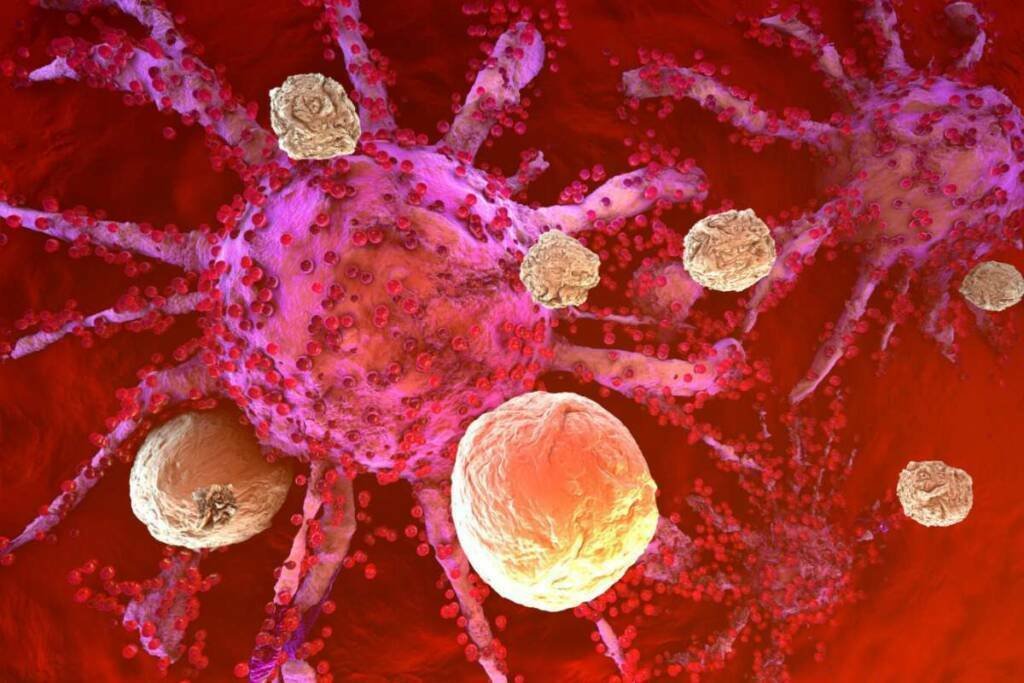Results from a real-world study presented at the European Society for Blood and Marrow Transplantation (EBMT) 49th Annual Meeting indicate that combining gilteritinib (Xospata) with allogeneic hematopoietic stem cell transplantation (allo HSCT) can lead to improved outcomes for patients with relapsed/refractory FLT3-mutated acute myeloid leukemia (AML).
The study, conducted by Dr. Desiree Kunadt and colleagues from 25 hematologic centers worldwide, enrolled a total of 156 patients. Among them, 69 were primary refractory, and 87 were relapsed cases. Patients with FLT3 internal tandem duplication (FLT3-ITD) mutation or FLT3 tyrosine kinase domain (FLT3-TKD) mutation were divided into three groups: those receiving gilteritinib monotherapy (n = 116), gilteritinib followed by allo HSCT (n = 23), and allo HSCT followed by gilteritinib maintenance (n = 17).
The findings showed that patients who received allo HSCT after gilteritinib treatment had a 2-year overall survival (OS) probability of 75%. Moreover, patients who received gilteritinib as maintenance therapy after allo HSCT had a 2-year OS rate of 90%.
When examining radiographic progression-free survival (rPFS) at the 2-year mark, the lowest rate was observed in the gilteritinib-only group (24%), followed by better rates in the gilteritinib + allo HSCT group (44%) and the group receiving gilteritinib maintenance after allo HSCT (74%).
Dr. Kunadt highlighted that overall survival was longest in patients receiving gilteritinib maintenance after allo HSCT and shortest in those receiving gilteritinib only.
The median age of patients in the study was 58.5 years, with most being women (57.1%). The majority had received either 0 (53.8%) or 1 (34.6%) prior treatment with an FLT3 inhibitor.
Patients’ OS and event-free survival (EFS) were notably better in the allo HSCT group compared to the monotherapy group. The complete response/complete response with incomplete recovery (CR/CRi) rates were also significantly higher in the maintenance group (70.6%) compared to the monotherapy (37.1%) and allo HSCT (34.8%) groups.
The analysis indicated that patients who underwent sequential allo HSCT after gilteritinib had significantly improved OS and EFS compared to those who received gilteritinib alone.





























